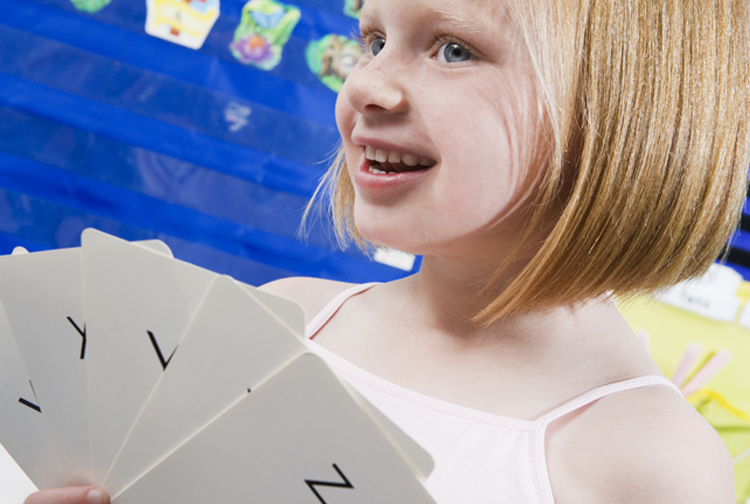Homeschooling is often portrayed as being stressful. Parents feel they don’t have the qualifications or the ability to teach. Children aren’t sure they want their parents as teachers, or they feel they will miss out on being with friends and doing school activities. But with the lockdown of 2020, many parents and children found themselves in an unintended homeschooling situation. While many schools switched to an online curriculum to aid students in learning, the parents still had to be there to help the children do their schoolwork. The stress of this new situation was hard on students, parents, and even teachers! With the 2021 school year on the horizon, and with many PPE mandates still in place, students and parents still have to contend with ways in which to learn from home. Some parents also found homeschooling beneficial and are changing their lifestyles to accommodate the changes. If you can settle into a routine that removes the stress, learning can be enjoyable for both your child and you. So just how stressful is homeschooling? Below are 12 ways that homeschooling can be less stressful for students and their parents who choose to embrace the new parameters.
Children Are Less Likely To Get Sick
Homeschooling is less stressful for students and parents when the children are less likely to get sick. Any gathering of people, including public and private schools, are attractive to germs and illnesses, making them a prime place for students to contract a whole array of bacteria, viruses, and other types of illness.
Homeschooling removes the issue of contracting illness from public school. Within the environment of home, children won’t lose precious learning hours being sick with a perhaps avoidable illness. Being well makes schoolwork less stressful and more inclined to get done.
The days of making up work, in addition to their homework, are gone. Children can cover schoolwork quickly, and without the stress of illness.
Later Morning Starts Tends To Help Decrease Stress
A study was done in a high school, wherein the teenagers were allowed to come in to school an hour later than the prescribed time. The study showed that the students achieved better grades and had more natural sleep patterns, which aided in their studies (https://www.sciencenewsforstudents.org/article/later-school-starts-linked-better-teen-grades). The stress-inducing morning rush was abated due to the later school start timing.
Homeschooling gets rid of all that stress because:
- Kids no longer have to worry about waking up late or missing the bus. If they sleep in some mornings, they can just make up the time later in the day. The stress of being late is gone.
- They are not rushed to brush their teeth, eat, gather homework, get dressed, and then get out the door in a short period of time. The stress of trying to get everything done at once is removed and they can take their time getting ready in the morning.
- Children can do their schoolwork in their pajamas if they’re so inclined, although parents should encourage them to get ready for the day as practice for real life situations such as going out for an extracurricular activity or going to a job (if they’re teens). The stress is reduced due to the ability to work in a preferred time-frame.
The Student Only Has To Answer To Their Parent or Guardian
Some students suffer from stress due to how many people they are expected to answer to, respect, and obey in a public or private school. This is especially stressful when the student may not have a good relationship with someone in a position of power at the school.
Homeschooling gets rid of that stress because the only people who are in charge are the parents or guardians of the student. The student no longer has to interact with the large number of people that are in positions of power at a public or private school.
If your child does not work well with people in positions of authority, homeschooling can be an excellent option to help mitigate the issues that may potentially arise. No longer do you have to worry about your child getting into trouble at school because their school will be their home.
With the one-on-one situation with you, the homeschooling parent, you can teach your child how to build better relationships with people in authority, how to work towards common goals, how to deal with tricky personal situations, and how to consider solutions to issues that arise with others. Teaching your child in the safe environment of home on how to deal with life and relationships can create much less stress for the child and the parent.
Students No Longer Have To Worry About Being Bullied
One of the biggest causes of stress for students is being bullied by their peers at school. Bullying is a serious issue, but it is often overlooked within public schools because they are overcrowded and understaffed, which means your student could have a very detrimental and stressful school experience.
Bullying has been shown to cause a student’s grades and test scores to decrease, their stress levels to rise, and their mental health to deteriorate. Public school culture can sometimes be detrimental to a child, but homeschooling can make a huge difference in a student’s well-being because it eliminates peer pressure and bullying.
When students are homeschooled bullying is usually nonexistent. There are cases where cyber-bullying may be happening if a child has online access. The best way to deal with that is parental controls and monitoring the child’s online time. Social interaction is necessary for children, and parents can lessen the stress of being a loner by allowing their student to participate in extracurricular activities with other homeschooled students. Common interests, including being homeschooled, allow your child to get the social interaction they need, and give a learning experience at the same time.
No Situations That Could Endanger The Student
Another significant source of stress for students and parents the different types of threats that can come with being in a school environment. Homeschooling does not have these threats, making it a safer and less stressful atmosphere for the student.
Some of the dangerous situations that homeschooling removes:
- Bomb threats are one of the biggest dangers in schools. While most have proven to be faked, these often plague public and private schools. The disruption of having to leave the classroom in an orderly, but hurried manner, the waiting for the all-clear to come from professionals, and the stress of re-entering a classroom with the knowledge that it “could” happen are not conducive for learning.
- School shootings are a fact of life in these times. Traumatic for all involved, children and their teachers can have PTSD for years after the fact. School shootings, where children were once thought to be safe, can cause long-term stress, damage to their psyche, and can be detrimental to their ability to function without fear.
- Homeschooled students no longer have to worry about getting into physical altercations with other students at their school. Being assaulted or getting into a physical fight with another student is eliminated. Being afraid because someone has threatened to physically hurt them is no longer a part of their experience and the child can learn in a stress-free home environment.
Reduced Peer Pressure For Homeschoolers
Something that is often overlooked as a source of stress for students at public and private schools is peer pressure. It is sometimes written off as something that students need to experience to grow as human beings and to be capable of functioning in society as a whole. However, peer pressure tends to do more harm than good.
All students are trying to be themselves in school, but the higher the grade level, the more pressure there is to fit in with the rest of the classmates. It is challenging to be yourself when everyone wants you to fit in with the crowd.
Homeschooling gets rid of all peer pressure and the need to fit in with an entire class of people. Instead, it allows the student to focus on what matters: their schoolwork and discovering who they are in this world. However, it is important to remember that peer pressure can still happen in small ways, even with homeschooling.
Online social interactions or homeschool social events can lead to some peer pressure to conform. Both of these scenarios open up the chance for peer pressure to occur, but it tends to be very minimal and rarely occurs often enough to induce stress in the student. Be aware of whom your child spends time with, and get to know their homeschooled friends and their parents.
No Waiting For Buses In Inclement Weather
Waiting outside in inclement weather for the bus to arrive is a non-issue with homeschooled children. While children can be dressed for the weather with jackets in winter and shorts in summer, the bus stop wait can be stressful, especially if the child is being bullied by their peers. Physical altercations can happen before the bus arrives, and it can be detrimental to the child being bullied. There have also been issues with stalkers and/or sex offenders secretly watching bus stops to target children. While incidents have been few and far between, it has resulted in parents or guardians hovering around bus stops to keep their children safe. The need to do this causes both children and parents to stress over the fact that while nothing may happen, something could. That stress can lead to a fearful attitude that affects the child years later.
If the student has a test or another important piece of schoolwork that needs to be completed, waiting for their bus in inclement weather may also affect their performance. Homeschooling can improve students’ grades because they do not deal with the issue of the weather, cold or hot.
The child can also get more sleep, which will, in turn, decrease their stress levels and help them do better with school work and improve their grades.
The Amount Of Homework Is Greatly Reduced Or Non-Existent
As every student will tell you, one of the most stressful things that they face is the large amount of homework that comes from public or private schools. Some schools initiated a model that teaches children rote memorization of specific data to pass state and federal testing. While they may learn some things, the point is to pass those tests so the school scores higher in rankings that show the school’s success, rather than the student’s success! Missing even one day of school, or homework results in a landslide of work that must be accomplished in a shorter amount of time to stay ahead. Children go to school for six to seven hours a day, and then instead of coming home to relax, they have to do another couple of hours of homework to remain ahead of the testing that occurs at regular intervals at school.
Homeschooling gets rid of all this additional stress on students by removing the homework entirely. No longer does a student have to take up family or relaxation time to complete homework. The flexibility of homeschooling allows the student to do work within an optimum time frame, to be stress-free, and to “go down a rabbit hole” of learning when they find an interest that may occupy their time for a while.
Homeschooled children can work on fostering a healthy learning and work attitude. They can also build an environment that has decreased stress, and one where they can focus on the things that matter in their lives. Homework does not need to exist for students to do well in school, and homeschoolers know that.
Students Can Learn Based On Interest
Another great way that homeschooling decreases the stress levels of students is that it allows students to learn about things that actually interest them. They no longer have to take classes that do not pertain to what they want to do, or be, for the rest of their lives. Instead, the classes they take will actually benefit them more, because they are based on interest.
There are many benefits of learning-based student interest:
- When a homeschooled child is learning material that they are actually interested in and pertains to what they care about, they will work to teach themselves. They will cover the material much better and more easily. To complete homework and tests on that material will also be stress-free because they know the subject well.
- Material that the student cares about will be used more effectively, making it less likely the student will forget the material when they are doing a test or something similar. In some instances, a homeschooled child’s interest can carry over into several subjects, as part of the learning process. This helps decrease stress levels, too, since the student is able to recall the material that is covered in various venues and can pass multiple tests in different disciplines to garner success.
- Being able to learn what one wants decreases stress and can help the student be more prepared for their future plans. If they care about what they are learning because it is something they are interested in, the homeschooled child will do exceptionally well in anything that uses that information.
The Student Is Not Inside For Hours Every Day
Homeschooling decreases stress for the student because they are not stuck inside every day. Most homeschoolers spend more time outdoors, due to the more relaxed lifestyle. Getting outside into the fresh air and sunlight can decrease students’ stress level because their bodies need that break and they absorb Vitamin D from the sun, which helps the human body function better in many different ways.
Students who go to public and private school get limited outside recess, and if the school offers it, the occasional gym class. Some schools have started working towards a nature-focused curriculum to help their students get the outside time that they need to decrease their stress levels, but it is usually not as much time outside as the average homeschooler acquires.
Homeschooled students can often go outside whenever they want as long as the weather permits and their schoolwork is done. However, schoolwork often extends outside for the homeschooler because their curriculum involves a more hands-on approach, especially with nature-based learning. The homeschooled child’s parents or guardians are typically involved in the nature learning, answering questions and even exploring their own interests with the child. The stress levels of a homeschooled child who works and plays outdoors is usually much less than one cooped up all day in a public or private school situation.
The Student Gains Real Life Experiences And Skills
Many adults like to think that school will give students all of the experiences and skills they will need to succeed in the real world. If you do well in school, you will have a successful life, and your stress levels will be low. However, this is not true and leads to higher stress levels for many students.
Most schools teach very few actual real-life skills, and life gets stressful as students get older and lack those skills. They will not be very successful or stress-free if they do not have the necessary life skills to function well within society.
Homeschoolers can learn all of these necessary life skills, since they are at home and placed into the real life of their families. Within the family, they can participate in building projects, outdoor maintenance, housekeeping, buying food, working within a budget, participating in community services, different types of extracurricular activities that encompass helping those less fortunate, travel, and many other opportunities that are closed to the regular public or private school student. The day to day aspect of learning is efficient and less stressful as they encounter these practices as a normal part of their lives.
Working Age Students Can Be Employed And Work Varied Hours
Few things induce as much stress in high-school students as having to juggle a job and going to school full-time. It is extremely stressful because many students go directly from school to their job, and then once they finish work, they have to go home and complete their homework. While some students don’t need jobs, many want them to pay for cars, insurance, and future college or trade school expenses that their parents may not be able to help with or supply.
- Homeschooling helps with this type of stressor because when they do school at home, they can choose when to do school and when to go to work. Couple that with the decreased amount of homework that comes with homeschooling, and it is the perfect combination to handle a real life job.
- Homeschooling also tends to offer up opportunities for better jobs than for those who go to public and private schools, since students are not limited to after-school hours. Instead, they can get a job that fits their schedule and their needs.




